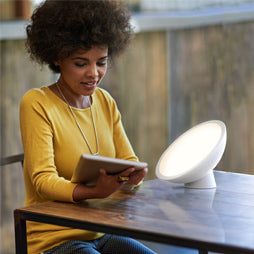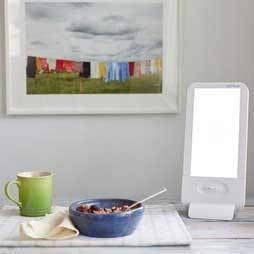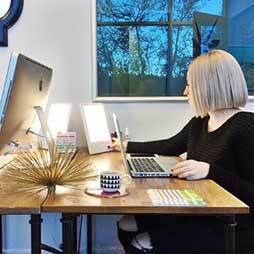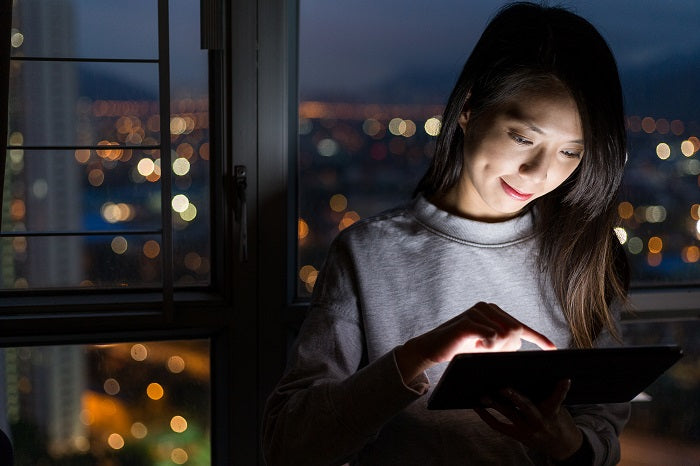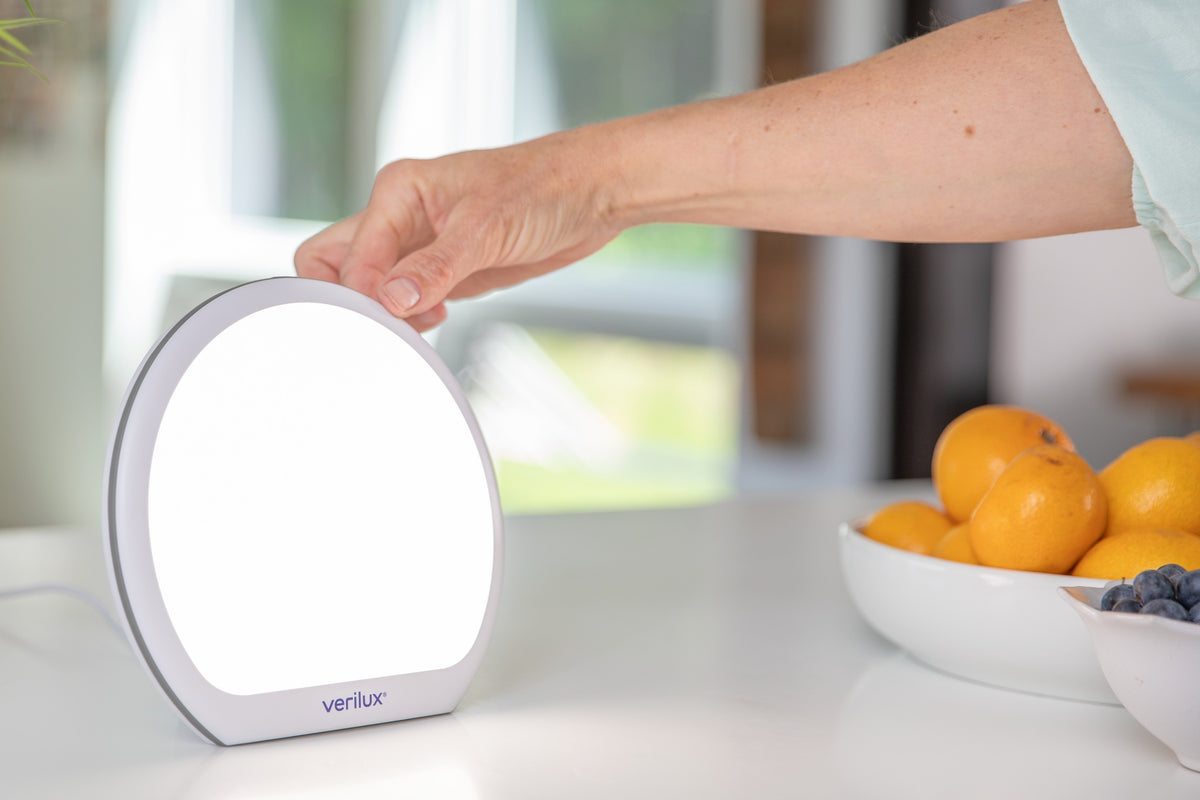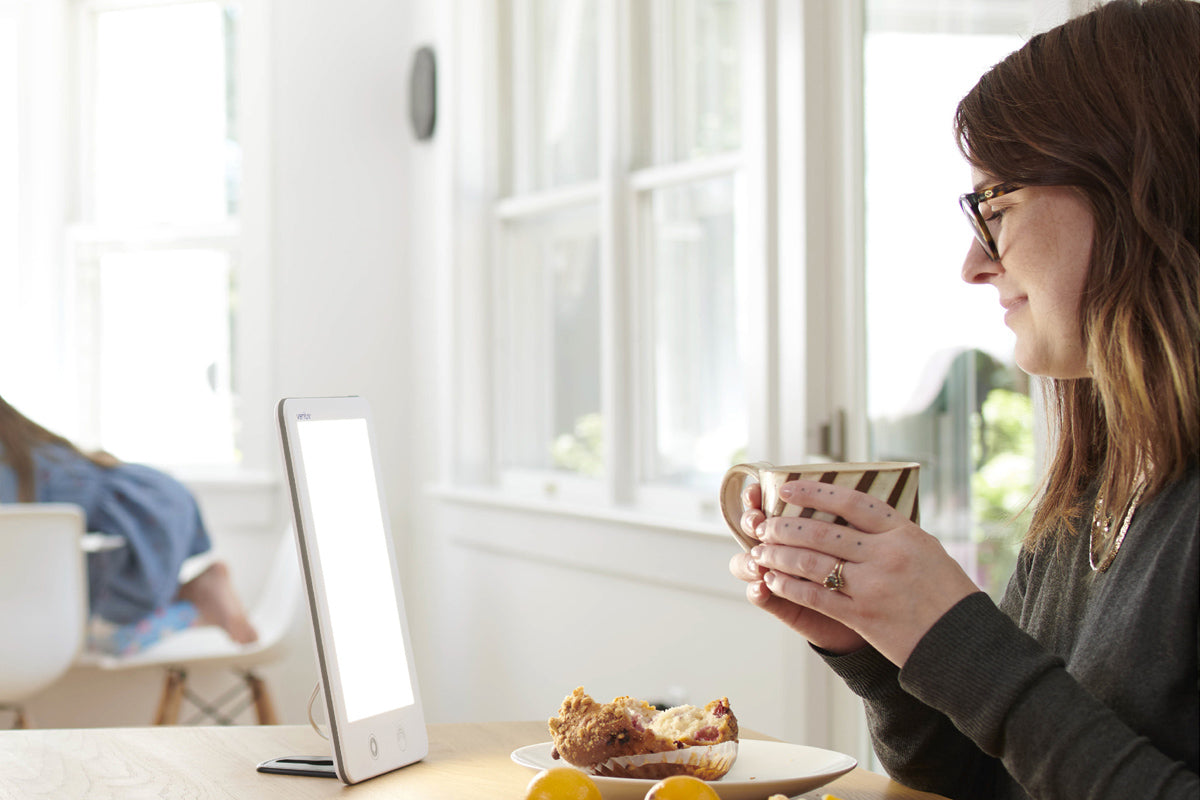One of the most common complaints that people have as they get older is that they can't sleep. Many people assume this is due to age and the day-to-day stressors and responsibilities of life. But there's a little-known reason why so many people don't sleep through the night - circadian rhythm disruption.
Thankfully, the 2017 Nobel Prize in the category of medicine or physiology, which was awarded to three American scientists who have been studying circadian rhythms since the 1980s, has increased interest in this topic. Knowing about this common sleep disorder can help take the mystery out of why you may be having trouble sleeping and provide you with you an easy solution to fix it.
Shop HappyLight
Learn more about how HappyLight therapy lamps can help too!
What is circadian rhythm?

What causes circadian rhythm disruption?
The disruption of our circadian body clock is caused by exposure to light at the wrong time of day. Our bodies evolved to be in sync with the cycle of the sun – meaning up until very recently, we would rise and rest with the sun. But our lifestyles have changed drastically just in the last 150 years, and now we have an incredible amount of light in our lives in comparison to our hunter-gather and agrarian ancestors.
In today's modern society, it is easy for our circadian rhythm to get off kilter when there are so many light sources competing for its attention, and as a result, it's also easy for our bodies to be confused about when is the appropriate time to go sleep. The Guardian, when reporting on the 2017 Nobel Prize, explained:
Modern lifestyles may no longer be constrained by sunrise and sunset, but light remains one of the most powerful influences on our behavior and wellbeing. This realization has fuelled a “sleep hygiene” movement, whose proponents point out that bright lights before bedtime and spending the whole day in a dimly lit office can dampen the natural circadian cycle, leaving people in a continual mental twilight – dozy in the morning, and too alert to fall asleep promptly at night.
It added that one of the three Nobel winning neuroscientists, Michael Rosbash, commented on his award by saying, "[Sleep has] been overlooked for a long time as a real public health problem... All of western society is a little bit sleep deprived and, when I say a little bit, I mean chronically."*
Blue light & circadian rhythm
So how do our modern lifestyles, chronic sleep problems, and circadian rhythm relate? Modern devices with blue light screens of cell phones, tablets and laptops have similar properties as the stimulating effects of the sun. When used habitually (particularly in the afternoon and evening), screens influence our brain’s chemistry and circadian rhythm causing us to have trouble sleeping.
More specifically, the blue wavelengths contained in sunlight and digital screens react with melanopsin receptors in our retinas. This halts the production of the sleep hormone melatonin, which is the hormone that signals to us when we're tired. It is why blue wavelength light from digital screens at night can throw off the circadian rhythm, delay the production of melatonin, and cause Delayed Sleep Phase Syndrome and other types of insomnia.
According to several studies, blue wavelengths can actually block up to 99% of melatonin production and delay melatonin onset for an average of 90 minutes.** And we all know that 90 minutes can feel like an eternity when trying to fall asleep.
So what can you do if you have a circadian rhythm sleep-related issue?
If you are feeling drowsy during the day and then feeling awake at night, it may be an indicator that your circadian rhythm is out of whack. The good news is that it is easy to reset your circadian rhythm, and people who do, often notice a difference in their sleep in a matter of days.
So how do you do it naturally? Limiting screen time and blue light in the evening before bed is helpful, but it's also important to get plenty of bright, healthy light in the morning. Regular indoor lighting and screens are not an adequate substitute for morning sunlight because they are not bright enough to fully mimic its intensity. What you can do is make sure to get 30 minutes of sunshine in the morning to set your body's circadian rhythm for the day. Adjusting your light intake to mirror the cycle of the sun will help to recalibrate your circadian rhythm to make sure you're falling asleep and waking up as nature intended.
If you can't get outside and into the sun due to lifestyle or climate challenges (which is true for so many people these days), bright light therapy like that provided by the HappyLight is a popular and safe substitute for the sun. It can reset your circadian clock with regular use by simply using it for 30 minutes every morning while eating breakfast or working at your computer. Unlike other modern lighting sources, HappyLight is bright enough to stimulate our body clock like the sun does. And unlike pharmaceuticals, it is a healthy, drug-free solution for sleep disorders.
* https://www.theguardian.com/science/2017/oct/06/western-society-is-chronically-sleep-deprived-the-importance-of-the-bodys-clock
** See Zeitzer, 2000; Duffy, J.F. & Czeisler, 2009; Gooley, 2011
Chart statistic source: National Sleep Foundation


